Putin's Useful Priests: The Russian Orthodox Church
Putin's Useful Priests: The Russian Orthodox Church and the ... - Foreign Affairs Magazine
On July 23, one of Ukraine’s largest churches, the Orthodox cathedral in Odessa, was seriously damaged by a Russian missile strike. The strike highlighted one of the lingering enigmas of Russian President Vladimir Putin’s brutal invasion of Ukraine: Moscow has been waging war not only on a neighboring population but also on one that, like its own, is overwhelmingly made up of Orthodox Christians. In effect, the Russian government has been forced to target its own religion in its campaign to subdue Ukraine. Yet despite this, members of Russia’s Orthodox clergy have been among the most vocal supporters of the war, and criticism from Orthodox leaders in other countries has been comparatively muted.
In some ways, this should not come as a surprise, owing to the well-known ties between the Russian Orthodox Church and the Putin regime. Since the early years of Putin’s tenure in power, the church has gained growing influence in Russian society and has enjoyed a strengthening of its historical links to the Russian state and the Russian military. In the year and a half since the invasion began, the church has also played a crucial part in supporting the war, with Patriarch Kirill, the head of the Russian Orthodox Church, becoming a prominent mouthpiece for the Kremlin’s military aims.
But alongside this domestic support has been another, less noted phenomenon: the strong backing Putin receives from Orthodox communities abroad. Many of these are in the West: in the United States, the Orthodox Church has 2,380 parishes, along with 41 male and 38 female monasteries. Although overall church membership remains small—in the United States, according to one recent estimate, there are 25,000 members—the large number of parishes gives the church a broad geographic presence, including in many major Western cities.
Following Russia’s full-scale invasion of Ukraine in 2022, an Orthodox leader in North America called on believers around the world to support it; in Europe, one of the West’s most prominent Orthodox bishops condemned the Ukrainian authorities, not the Russian army, for the atrocities that have been committed against Christians during the war. Even more striking has been an ambitious campaign to win Russian Orthodox hearts and minds—including in the United States and other Western countries—that has been led by an arm of the church with links to Russian intelligence and the Russian government.
Such is the current extent of these efforts that they have caught the attention of the U.S. government. Earlier this year, the FBI privately warned members of the Orthodox community in the United States that Russia was likely using the church to help recruit intelligence sources in the West. Members of the community gave us copies of FBI documents that had been shared among Russian Orthodox and Greek Orthodox parishes. The documents identify and highlight the activities of a senior member of the Russian Orthodox Church’s foreign relations department whom the FBI suspects of having ties to Russian intelligence. The FBI’s warning suggests that the church may be even more closely linked to the Putin regime than many observers assume, with potentially significant implications for the Kremlin’s overseas influence. Given the church’s well-established presence in Western countries, these links could also complicate efforts to build an effective Russian opposition abroad.
RUSSIA’S BULWARK, PUTIN’S OPPORTUNITY
In itself, it is unsurprising that the church could play an important part in furthering Russia’s strategic interests. For centuries, the church has been closely connected with the Russian state, a relationship that has spanned the eras of the Russian Empire to the Soviet Union to Putin’s Russia. From the eighteenth century until the Russian Revolution, the Russian tsar was the head of the Russian Orthodox Church, which in turn gave legitimacy to Russia’s imperial rule; Russia’s brand of orthodoxy is based on the concept that Moscow is “the Third Rome”—the successor to the Christian empires of ancient Rome and Byzantine Constantinople. The church’s influence also buttressed (and was bolstered by) a national-imperial ideology of Russian exceptionalism, which held that the church’s mission was to serve the tsar and defend the sacred motherland.
Ironically, communist rule didn’t change this orientation much, despite the Soviets’ systematic persecution of church leaders, the confiscation of church property, and the general dismantling of the church’s influence after the Bolshevik Revolution. During World War II, when the Soviet leader Joseph Stalin asked the church to help rally the population to the defense of the Soviet Union, church leaders responded to his call—not out of opportunism but because they recognized that the country’s ideology was rapidly moving from a vision of proletarian rule and universal communism to a renewed nationalist ideology that drew on the Russian Empire’s glorious past. Stalin understood that nationalism was more inspirational to soldiers who were risking their lives in a devastating war with Nazi Germany, and the church readily embraced that view.
In the later decades of the Cold War, despite the official atheistic rhetoric of the Soviet government, the church kept close to the state. One of us (Soldatov) had a grandfather who was a high-placed Moscow military official in the early 1980s and was proud to be invited to the Orthodox Easter service at Yelokhovo Cathedral in Moscow. Back then, it was the country’s main church, and the invitation was a symbol of elite status. The KGB closely monitored the church but not merely for surveillance purposes: operatives also keenly assessed clergy and laypeople as potential agents and sources.
From the beginning, Putin wanted to bring the Russian diaspora under his control.
In part, this was because the KGB and the church shared a belief that the country was under constant threat from the West and was surrounded by numerous enemies who sought to undermine Moscow. What is more, going back to the thirteenth century, the Russian Orthodox Church had been suspicious of the eastward expansion of Catholicism, which it viewed as the West’s attempt to impose its own religion on Slavic civilization. For the KGB, the Russian church’s historical preoccupation with the threat of outside influence meant that it could be co-opted in Soviet efforts to create an ideological bulwark against the West.
The tight relationship between the church and the security apparatus did not end with the collapse of the Soviet Union. The democratic changes of the 1990s touched many areas of Russian society, but they left two institutions almost completely intact: the KGB, which continued to operate much as before even though it was split into several parts, and the church. Although democratic reformers and liberal priests called for a sweeping reform of the Russian Orthodox Church, their efforts came to nothing. Instead, under Putin, the church found a new supporter and protector.
In the first years of Putin’s administration, the FSB, the successor to the KGB, took actions to protect the Orthodox sphere of influence. In 2002, five Catholic priests were expelled from Russia by the FSB on the pretext of espionage charges. In return, the church gave the FSB its blessing: later that year, the Cathedral of Saint Sophia the Holy Wisdom of God was reopened just off Lubyanka Square, a block away from the FSB’s Moscow headquarters. Patriarch Alexy II himself blessed the opening of the cathedral in a ceremony attended by Nikolai Patrushev, then the FSB chief, who today serves as the head of Putin’s security council.
The Russian Orthodox Church may be even more closely linked to the Putin regime than many observers assume.
Putin’s patronage came with a price: he expected the church to contribute to the stability of his regime through activities in Russia and abroad. From the very beginning, he wanted to bring the Russian diaspora in the West under his control. To achieve this, he made it his personal project to subjugate the Russian Orthodox Church Abroad.
Formed by the remnants of the White Army in the countries where the Russian exiles settled in the 1920s, that church became known as the White Church (whereas the exiles referred to its counterpart in Soviet Russia as the Red Church, because it was assumed to be penetrated by the KGB). Since 1951, the White Church has had its headquarters in New York City, at the corner of Park Avenue and East 93rd Street, and throughout the Cold War, it remained completely independent from the church in Moscow. Its rival, the Red Church, also had a presence in New York at St. Nicholas Church on East 97th Street.
After Putin came to power, he resolved to bring the Russian Orthodox Church Abroad under the Moscow patriarchate. Putin personally supervised a years-long courtship of White Church priests, at one point sending a gift to the head of the White Church—an enormous icon of the last Russian empress, Alexandra, who was executed together with Tsar Nicholas II and the rest of the imperial family in 1918 by Bolshevik revolutionaries. In sending the icon, Putin appeared to be signaling that it was time to rehabilitate the memory of the imperial order. In May 2007, the two churches signed an accord, known as the Act of Canonical Communion, in an elaborate ceremony at Christ the Savior Cathedral in Moscow.
Ever since, the Russian Orthodox Church Abroad has supported the foreign policy of the Kremlin and played a role in its propaganda campaigns. For instance, in 2014, the Immortal Regiment, a Kremlin-sponsored initiative in which Russians march on Victory Day holding photos of their relatives who fought in World War II, was introduced in the United States with the support of St. Nicholas Church in New York. But the Russian Orthodox Church Abroad also began to serve Russian intelligence in other ways, creating a network of pro-Kremlin support across the West. In the years before Russia’s 2022 invasion of Ukraine, these efforts began to attract the attention of Western law enforcement, including the FBI.
THE PATRIARCH’S PLAN
In the spring of 2023, the FBI distributed a six-page notification within the Orthodox community in the United States titled “Russian Intelligence Services Victimize Russian Orthodox Church and other Eastern Orthodox Churches.” The warning, which bears the seal of the FBI, names and shows a photograph of a senior official in Russia’s Department for External Church Relations—the foreign service of the Russian Orthodox Church—and states that there are reasons to suspect that the man is a “Russian Intelligence Officer operating under non-official cover.” His objective in the United States, according to the warning, was to recruit the clergy of the Russian Orthodox Church and other Orthodox churches. The FBI’s national press office declined to comment on the notification and the information it contains, but noted that the bureau “regularly meets and interacts with members of the community . . . to enlist the cooperation of the public to fight criminal activity” and encourages “members of the public who observe threatening or suspicious activity to report it.”
According to publicly available information, the Russian national in question was trained in Moscow and worked for the Department for External Church Relations for more than two decades. This work frequently took him abroad, including to the United States. According to the FBI notification, in May 2021, when he arrived on a visit to the United States, the church official was briefly stopped and searched by U.S. Customs and Border Protection officers. Although the official does not appear to have been detained or formally charged, a subsequent FBI review of materials found during the search revealed that he had been carrying what the FBI notification describes as “intelligence documents,” including documents concerning both Russia’s foreign intelligence service, the SVR, and its military intelligence agency, the GRU.
The Holy Transfiguration Russian Orthodox Cathedral in Hollywood, California, August 2014
Lucy Nicholson / ReutersAmong the documents was a memorandum marked “confidential” that outlined the establishment of a “system of cooperation” between the church and several Russian spy agencies, including the SVR, the GRU, and the FSB. In a list of “areas of interaction” between the church and the spy agencies, the memorandum calls for the “preparation of the staff” of both the church and the SVR and suggests that church staff be brought into the “operational activities” of the SVR, stipulating that this would happen “exclusively at the direct approval from the Patriarch.” It also states that the GRU is “ready to expand the cooperation” with the church, which could “very gradually” come to include “real field activity.” For the FSB, the church is deemed of interest on such counterintelligence matters as “opposition to sects, and development of parity actions toward foreign organizations.” (A full copy of the memorandum was appended to the FBI warning.)
According to the FBI notification, the Russian national was also carrying “files regarding the source/agent recruitment process” as well as dossiers on church employees, including detailed biographical information about them and members of their families—information that the warning suggests could be used to blackmail employees of the church into participating in spy operations. These files were not included in the warning, and the claims could not be independently verified. But members of the Orthodox community confirmed that the Russian official had many meetings with church officials in the United States and had been traveling to the country since the 1990s.
Attempts to reach the Russian national were unsuccessful. The Russian embassy in Washington and the Department for External Church Relations in Moscow did not reply to requests for comment about the FBI’s findings and the activities of the official in the United States. But in an email, a spokesman for the department wrote that the person was “no longer an employee of the Department for External Church Relations” and that he had been“fired” in June 2023.
Of special significance may be the date of the memorandum outlining the new relationship between the church and Russian intelligence. Russian sources who are close to the patriarchate in Moscow and who have seen the document date it to the spring or summer of 2009, shortly after Patriarch Kirill took office in February. This would match the FBI’s metadata analysis, which dates its creation to late March 2009. The Russian sources also suggest that the document was likely drafted by the church administration at the direct request of Patriarch Kirill. If that is correct, it would provide further evidence that Kirill almost immediately set out to establish a new level of cooperation between the church and Russia’s security services, a relationship that appears to have grown in the decade leading up to the 2022 invasion of Ukraine.
MOSCOW’S HOLY WAR
In the years after 2009, as Kirill consolidated his leadership of the Russian Orthodox Church, the church’s growing presence in Russia’s state administration expanded to include the military. By 2010, the Russian Orthodox Church had taken on a new role inside the Russian army with the introduction of military priests, or chaplains. And in 2020, Putin and his defense minister, Sergei Shoigu, joined Patriarch Kirill to inaugurate the Cathedral of the Armed Forces, a vast new military-themed complex near Moscow that is designed to symbolize the church’s central place in Russia’s military history. The 2022 invasion brought this involvement to a new level.
Since the war began, images of religious icons have flooded Russian social media, along with prayers for the victory of the Russian army and calls to pray for soldiers on the battlefield. Kirill has become a leading voice for the “special military operation,” as it is officially known. Following the announcement of Putin’s partial mobilization in September 2022, for example, Kirill declared that “sacrifice in the course of carrying out your military duty washes away all sins.” He also attacked the West, claiming that unidentified forces were trying to turn the Ukrainians from being “part of the holy united Rus into a state hostile to this Rus, hostile to Russia.”
The church has also deployed firebrand clerics to drum up support for the war, such as Andrei Tkachev, a Ukrainian-born priest and TV personality who left Ukraine in 2014 and has become one of the most aggressive pro-war voices in the church. Since the start of the invasion, his videos on YouTube have been widely shared among Russian special forces. Meanwhile, Russia’s most professional military units, including the special forces, have embraced religious symbols in an appeal for divine protection. And Russian battalions are being named after Russian saints such as Alexander Nevsky, a thirteenth-century Russian prince who was canonized for his military victories over Swedish and German crusaders.
Since the war began, Orthodox communities abroad have largely remained loyal to Moscow.
Even more striking, however, may be the church’s effort to stir support for the war outside Russia, including in the West. Despite the reality that Russia is at war with another Orthodox country, the Russian Orthodox Church Abroad has largely remained loyal to Moscow. In an interview in August 2022 with a website close to the Moscow patriarchate, for example, Archbishop Gabriel of Montreal and Canada justified the invasion in language that closely follows official Russian propaganda. “Russia was forced to take steps to protect itself from the neo-Nazis who were shelling civilians in Donbas for eight years, and continue to this day,” he said.
In London in March 2023, Bishop Irenei, the head of the Diocese of Great Britain and Western Europe and the most influential bishop in the Russian Orthodox Church Abroad, went further, issuing an “Open Letter on the Persecution of Christians in Ukraine” in which he cited “the tragedy of the most extraordinary and heartless persecution of Christians taking place in many parts of the country.” The letter puts the blame for this persecution on Ukrainian authorities, not the Russian army: Bishop Irenei was referring to Ukrainian charges against clerics of the Russian Orthodox Church in Ukraine who have supported the Kremlin.
Significantly, these two prominent Orthodox officials were born and raised in the West. They are not commissars sent from Moscow, and their adoption of the Kremlin’s framing of the war does not appear to be enforced by the Russian government. Rather, it largely reflects the orientation of Russian Orthodox communities overseas: although many Ukrainians have defected from the Moscow patriarchate since the invasion, many churches and parishioners in other countries have chosen to stay within the Russian Orthodox Church. “When the war started, some priests in Russia took an antiwar stand and were subjected to punishments, both by the Church and the state. But most priests, including those abroad, suppressed any discussion of the war out of fear of losing their flock, which by and large supported the war,” one member of the Russian Orthodox community in New York told us.
The reasons for these pro-Russian views are ideological: many descendants of the first wave of Russian exiles to the West—people who left in the 1920s after the Bolshevik Revolution and even those who left in the 1940s after World War II—remain stuck in the memories of the glorious imperial past. This part of the Russian diaspora is naturally drawn to the nineteenth-century nationalist ideologies that Putin has embraced. “For them, Ukraine has never been a country,” our contact said.
THE KREMLIN’S TRUE BELIEVERS
When Putin launched his invasion of Ukraine, church leaders saw an opportunity to turn the country into a full-fledged fundamentalist regime in which Russian Orthodoxy would return to its historical role as an anchor for the Russian state. The embrace of this approach suggests that there will be ever-closer cooperation among the church, the military, and the intelligence services, with the result that the church will significantly enhance the Russian government’s disinformation campaigns abroad and efforts to infiltrate the West, particularly through its relations with the Russian émigré community.
Given the current constraints on Russian espionage, it seems likely that the person identified by the FBI is not the only church official working side by side with Russian intelligence. With so many Russian diplomats expelled from Europe, traditional options for Russian spies, who have often operated under diplomatic cover, are rapidly shrinking. For the Kremlin, the church, with its broad network of parishes, can provide a palatable alternative. In turn, Putin’s backing—and the war in Ukraine—has given the Russian Orthodox Church a crucial new mission after decades of stagnation and decline.
The Russian government’s growing focus on traditional values, empire, and militarism has provided a dramatic boost to the Russian Orthodox Church and its affiliates abroad. This religious resurgence not only enhances the legitimacy and durability of the Putin regime; it also poses a growing security threat with which the West will have to contend.
Loading...
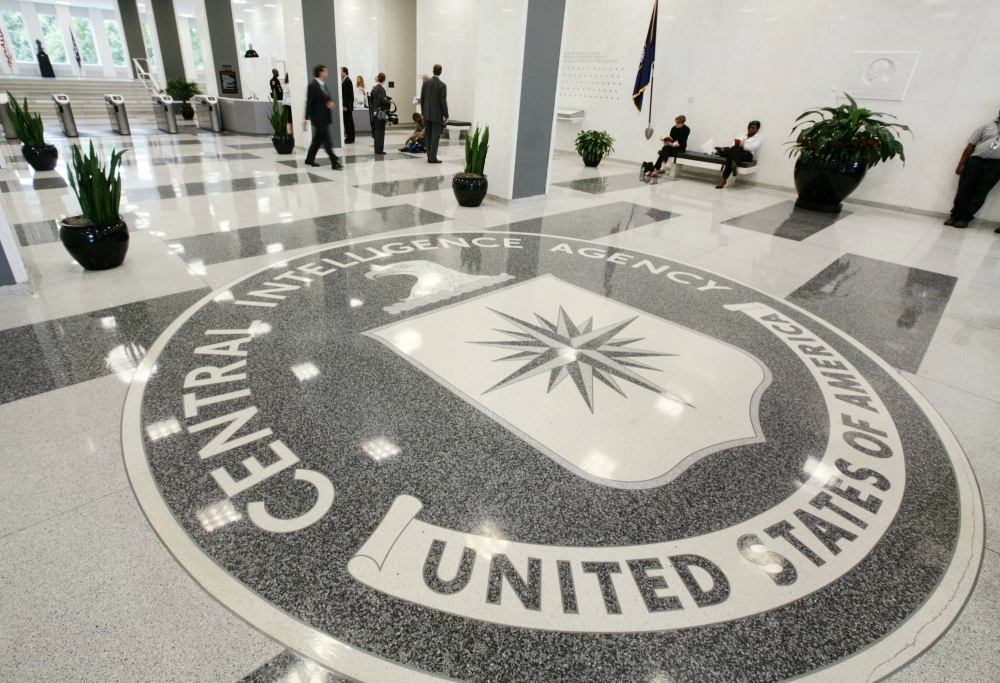
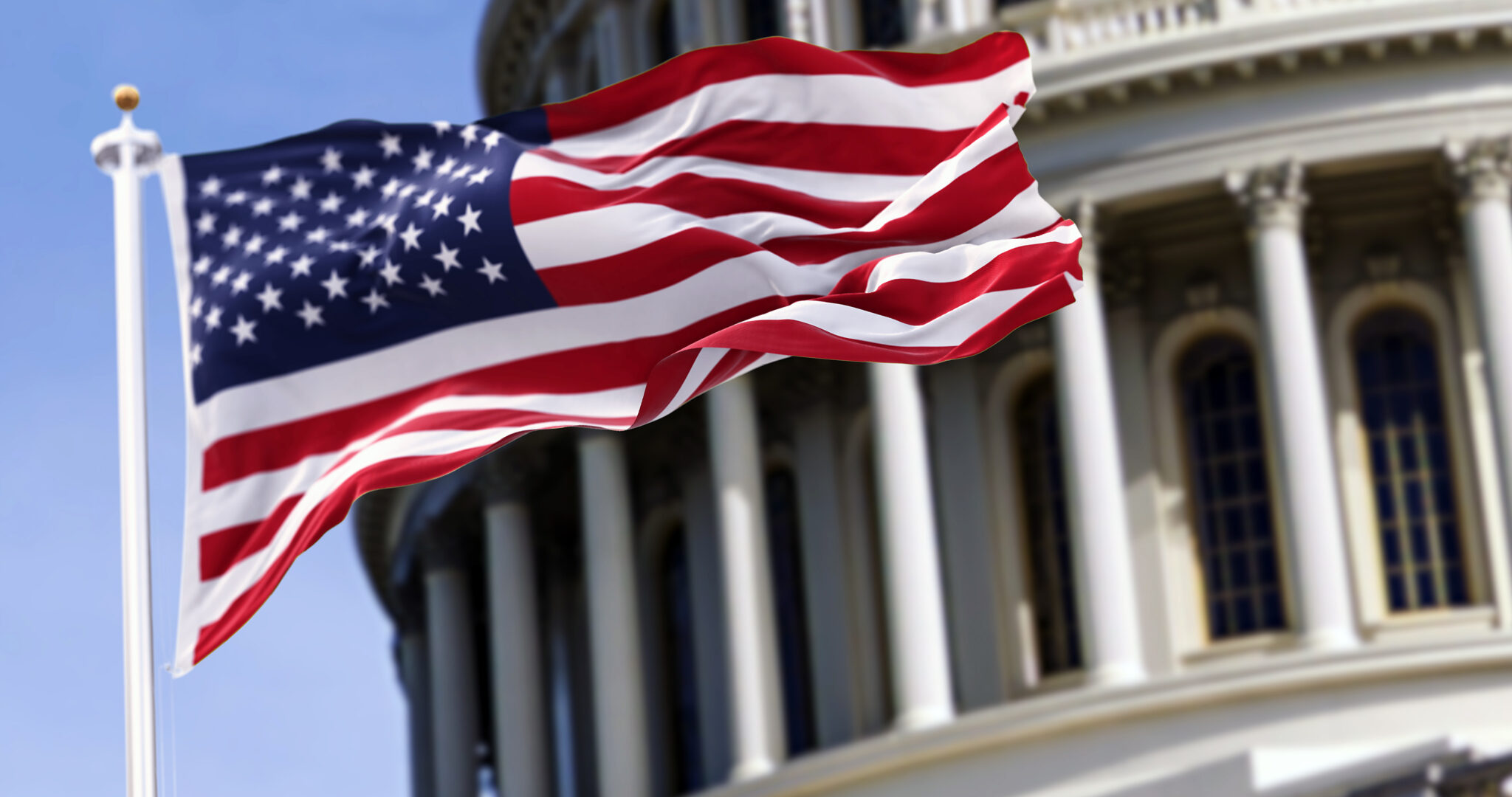


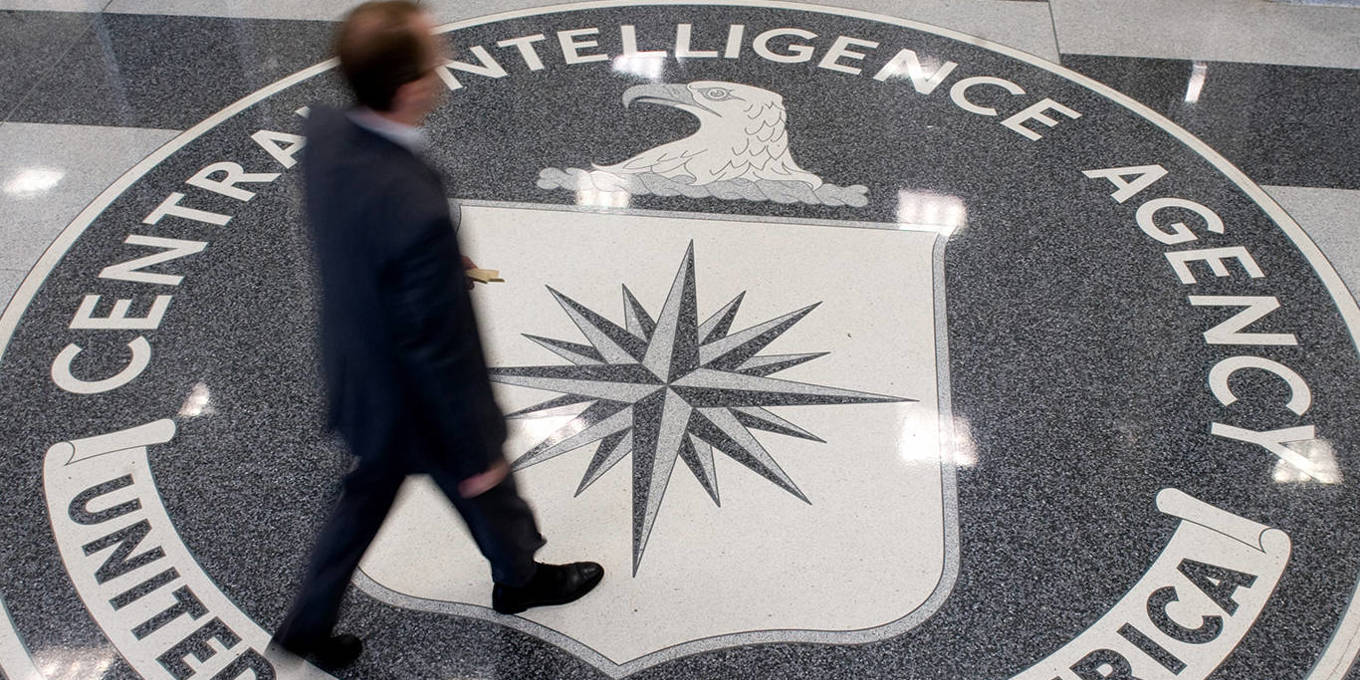

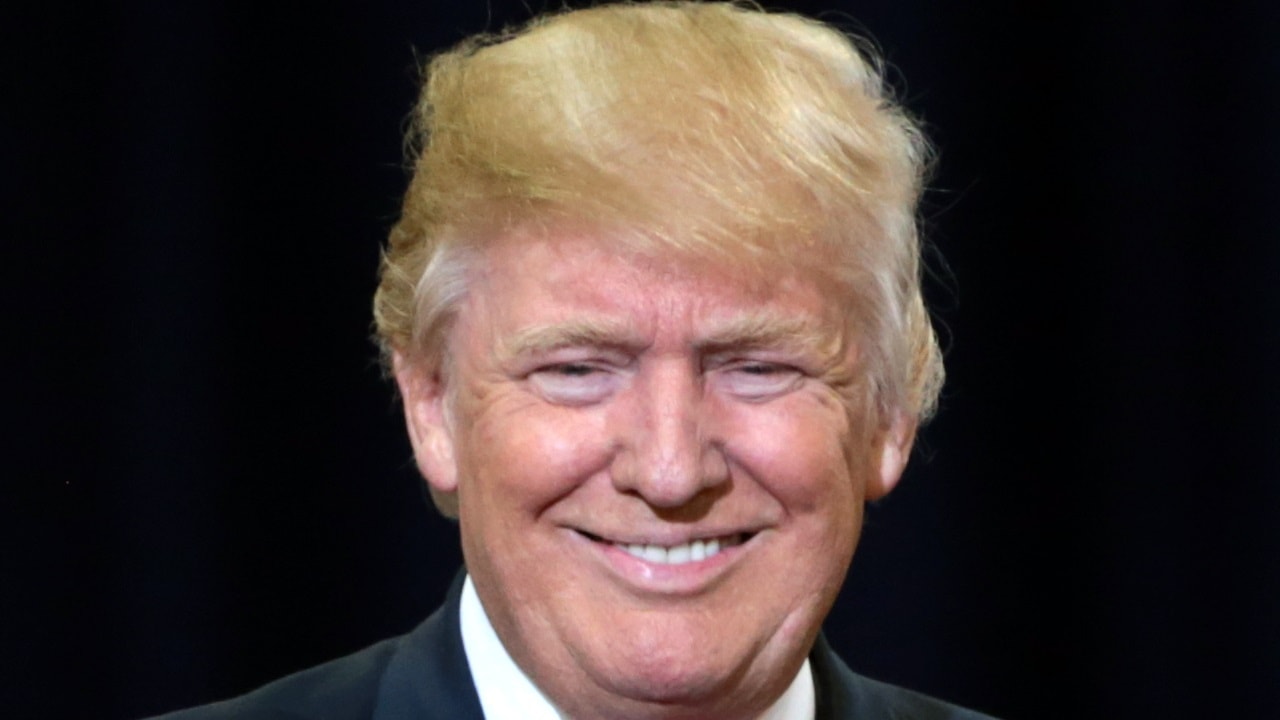
According to the latest Morning Consult tracking poll, released Monday, Donald Trump now has 61 percent support in the Republican contest, nearly 50 points ahead of the rest of the field.
The post Donald Trump Gets Some Shockingly Good News appeared first on 19FortyFive.
In the poor outskirts of the Cuba's capital, Havana, a spate of men have been recruited to fight for the Russian army in Ukraine. Reuters has traced their stories, and spoken to the loved ones they left behind https://reut.rs/3ZDLfGG
Keep up with the latest news from around the world: https://www.reuters.com/
#Cuba #Russia #Ukraine #News #Reuters #newsfeed
Subscribe: http://smarturl.it/reuterssubscribe
Reuters brings you the latest business, finance and breaking news video from around the globe. Our reputation for accuracy and impartiality is unparalleled.
Get the latest news on: https://www.reuters.com/
Follow Reuters on Facebook: https://www.facebook.com/Reuters
Follow Reuters on Twitter: https://twitter.com/Reuters
Follow Reuters on Instagram: https://www.instagram.com/reuters/?hl=en
A Russian tank explodes and driver flees wreckage as Ukrainian forces strike as the counter offensive continues to build momentum.
In this footage, released by the 66th Mechanized Brigade of the Ukrainian Armed Forces and shows an armoured Russian T-90 tank going up in flames after being struck from distance by a deadly missile.
The driver of the tank can be seen crawling out from the wreckage and making a quick getaway. This video has not yet been verified by The Sun and the location is currently unconfirmed but is allegedly near Bakhmut.
The Sun newspaper brings you the latest breaking news videos and explainers from the UK and around the world
Become a Sun Subscriber and hit the bell to be the first to know
Read The Sun: http://www.thesun.co.uk
Like The Sun on Facebook: https://www.facebook.com/thesun/
Follow The Sun on Twitter: https://twitter.com/TheSun
Subscribe to The Sun on Snapchat: https://www.snapchat.com/discover/The_Sun/1633225139
#russia #ukraine
 image/jpeg Damian-Williams--qtcv-moth.jpg
image/jpeg Damian-Williams--qtcv-moth.jpgWagner Group set for major rejuvenation as Prigozhin's son 'takes command' of unit
The Wagner Group is set for a major rejuvenation as Yevgeny Prigozhin’s son Pavel is poised to take command of the mercenary unit.
Pavel, 25, is reportedly negotiating with Moscow on returning Wagner troops to the war in Ukraine.
The Institute for the Study of War suggested the new leader is in talks with the Russian National Guard over the future of the group.
Wagner is currently embroiled in a number of scattered combat elemtns, including in Belarus, the Central African Republic, Libya and Mali.
Former leader and founder Yevgeny died in following a plane crash in August.
The one-time Vladimir Putin ally had previously launched a failed mutiny aimed at removing the top brass of the Russian military.
The Wagner Group was reportedly left frustrated last week when the Russian President embraced the return of one of Moscow’s former senior commanders.
The Kremlin confirmed the return of Andrei Troshev in overseeing volunteer fighters in Ukraine.
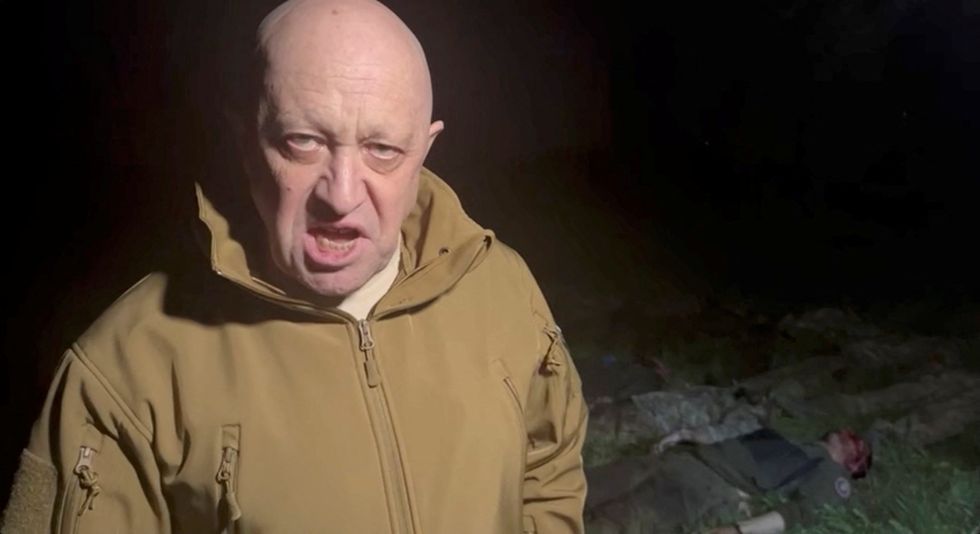
Yevgeny Prigozhin, known as 'Putin's chef, previously headed up the mercenary Wagner Group
ReutersPavel’s involvement in the Wagner Group is reportedly a sign of how the mercenaries are rallying around a “Prigozhin-linked alternative to the Kremlin- and MoD-aligned Troshev, even if that alternative is not an independent entity”.
A Russian source claimed Pavel is working under the influence of Wagner’s security service chief Mikhail Vitanin.
Kyiv last week reported that several hundred Wagner fighters returned to the ex-Soviet state.
Mercenaries had withdrawn from Ukraine following the capture of Bakhmut in May.
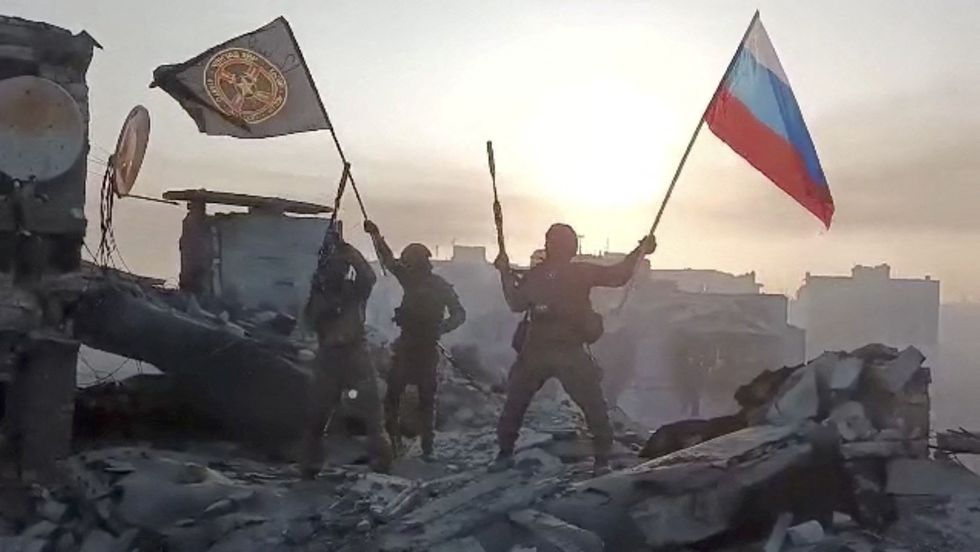 The head of the Wagner group was once considered a close ally of Putin and had been nicknamed Putin's 'chef'Reuters
The head of the Wagner group was once considered a close ally of Putin and had been nicknamed Putin's 'chef'ReutersSerhiy Cherevatyi, a spokesman for Ukrainian troops in the east, said: “We have recorded the presence of a maximum of several hundred fighters of the former Wagner PMC [private military company].”
He added: “They do not constitute any integral, systematic, organised force.
“As they say, game over. These are pathetic remnants, nothing good awaits them here.”
Russian military bloggers have also reported that some Wagner fighters have been returning to Ukraine in recent weeks.


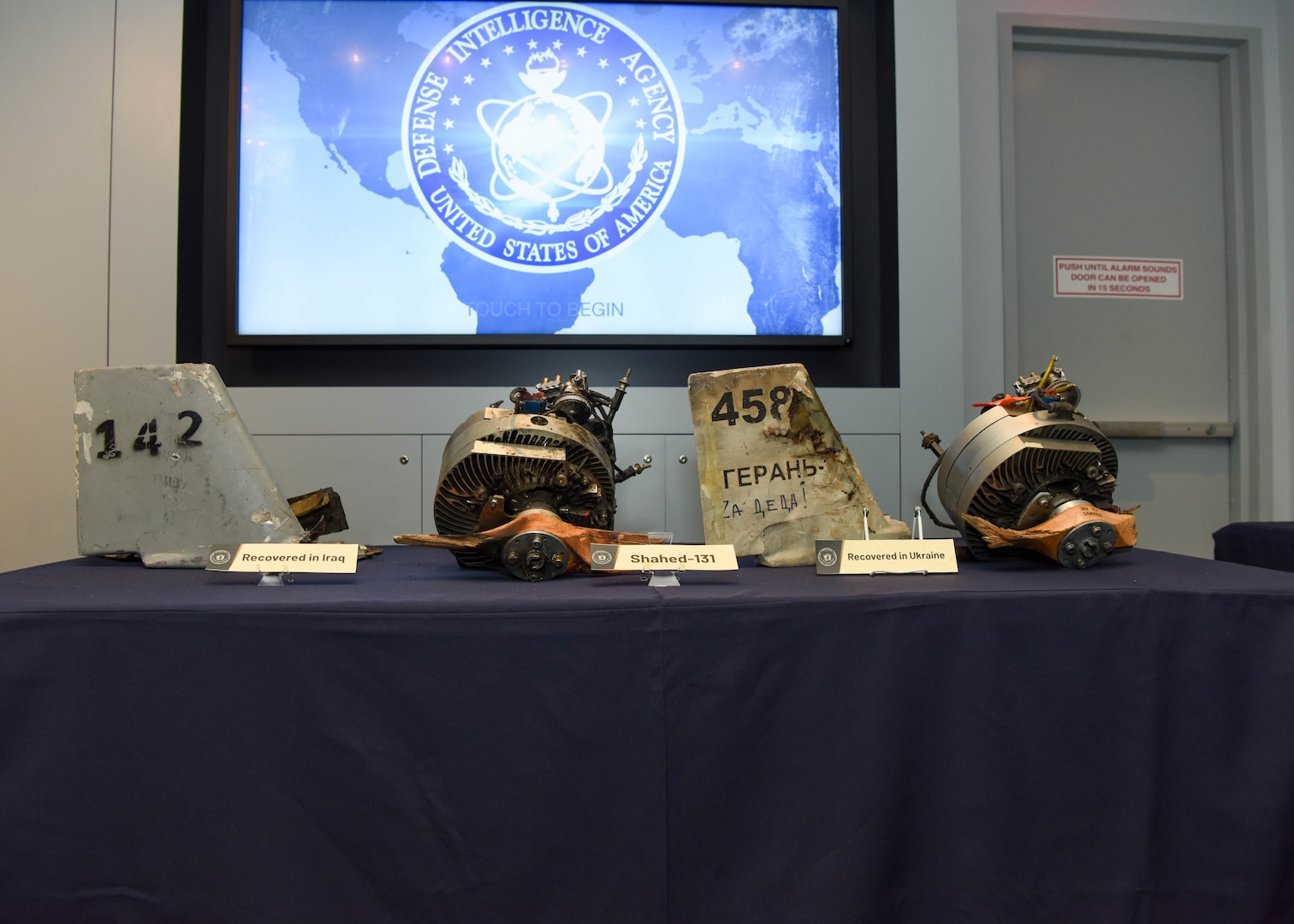


Comments
Post a Comment